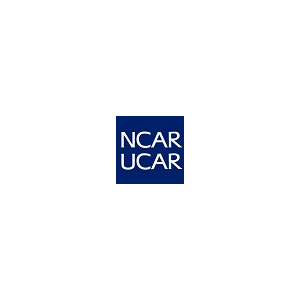Job Description
Application Deadline: This position will be posted until May 21, 2021.
Position Term: Two year term with the possibility for extension.
Relocation: Relocation assistance is available for this position.
Work Authorization: UCAR/NCAR will sponsor a work visa to fill this position.
Salary:
Hiring Range: $78,406 - $98,008
Full Salary Range: $78,406 - $98,008 - $127,410
Benefits: UCAR affirms its continuing commitment to developing, providing, and administering its employee benefit programs with due consideration for equal employment opportunity and diversity guidelines. UCAR's rich package of employee benefits includes medical, dental, vision, education assistance, retirement, and life insurance. UCAR offers a variety of programs designed to assist with work-life balance including flexible work alternatives, paid time off and 14 weeks of paid parental leave.
Where You Will Work:
The mission of the Mesoscale and Microscale Meteorology Laboratory is to advance the understanding of the meso- and microscale aspects of weather and climate, and to apply this knowledge to benefit society.
What You Will Do:
Supports and contributes to data-assimilation research and development in MMM, especially as related to cloud analysis and forecasting with the Model for Prediction Across Scales (MPAS) and the Joint Effort for Data assimilation Integration (JEDI). Works within larger team and under the guidance of project leads.
Responsibilities:
Perform complex and computationally intensive data-assimilation experiments, and analyze results of such experiments.
Develop, modify and test elements of larger assimilation systems. Develop and modify workflows for assimilation systems, including real-time applications.
Acquire, reformat as necessary and analyze datasets for cloud, from both models and observations.
Contribute to preparing results for publication in peer-reviewed journals and for presentation at meetings and conferences. Prepare and deliver summary reports or project progress reports as needed.
What You Need:
Education and Years of Experience
Bachelor’s degree in Meteorology, Applied Mathematics, or a related field, and at least two years of experience in a research environment; or an equivalent combination of education and experience.
Desired:
Experience and specialization in data assimilation
Experience with high-performance computing environments, especially for experiments in numerical weather prediction or data assimilation
Experience with satellite remote sensing, especially as applied to numerical weather prediction and data assimilation
Knowledge, Skills, and Abilities
Knowledge and experience with probability and statistics
Developed skill in data assimilation or state estimation for numerical weather prediction or computational fluid dynamics
Knowledge of and skills in scientific programming in Fortran or C++
Demonstrated ability to work productively with Linux/Unix operating systems
Demonstrated ability to work productively with heterogeneous set of display and analysis software tools
Effective written and oral communication skills
Demonstrated ability to work independently and as part of a development team
Applicant Notes:
A cover letter is required.
An Inclusion Statement will be required for all applicants moving into the interview stage. This statement should address past efforts, as well as future vision and plans to advocate for and advance diversity, equity, and inclusion in the organization and/or field of work.
A pre-employment screening is conducted in conjunction with an offer for employment. This screening may involve verifying or reviewing any of the following relevant information: restricted parties screening, employment verification, performance records of internal candidates, education verification, reference checks, verification of professional licenses, certifications, and Motor Vehicle Records. UCAR complies with the Fair Credit Reporting Act (FCRA).
Please note that while the position description details both minimum requirements as well as desired skills and experience, we want to remind applicants that you do not need to have all the desired skills and experience to be considered for this role. If you have the passion for the work along with experience in a related field, you are encouraged to apply. We can provide on-the-job training for the rest.
NCAR
Boulder, CO
NCAR was established by the National Science Foundation in 1960 to provide the university community with world-class facilities and services that were beyond the reach of any individual institution.
More than a half-century later, we are still delivering on that mission. NCAR provides the atmospheric and related Earth system science community with state-of-the-art resources, including supercomputers, research aircraft, sophisticated computer models, and extensive data sets.
NCAR's in-house staff of preeminent researchers and engineers works with community collaborators to ensure that these resources and facilities are capable of meeting the demands of today's greatest scientific challenges. Our scientists also delve into fundamental research questions, producing a wealth of scientific publications that help lead the way for the broader Earth system science community.
NCAR also provide rich education and outreach opportunities, from fellowships for early career scientists to free public lectures to scientific workshops.
Since our inception as NSF's first federally funded research and development center, we have been managed by the University Corporation for Atmospheric Research, a nonprofit consortium of more than 115 colleges and universities. Our headquarters are in Boulder, Colorado, with additional facilities in Wyoming and Hawaii.
Vision & Mission
The NCAR Vision:
A world-class research center leading, promoting and facilitating innovation in the atmospheric and related Earth and Sun systems sciences
The NCAR Mission:
To understand the behavior of the atmosphere and related Earth and geospace systems
To support, enhance, and extend the capabilities of the university community and the broader scientific community, nationally and internationally
To foster the transfer of knowledge and technology for the betterment of life on Earth
-
IndustryResearch and Development
-
No. of Employees1,000 - 5,500
-
Website
-
Jobs Posted244


